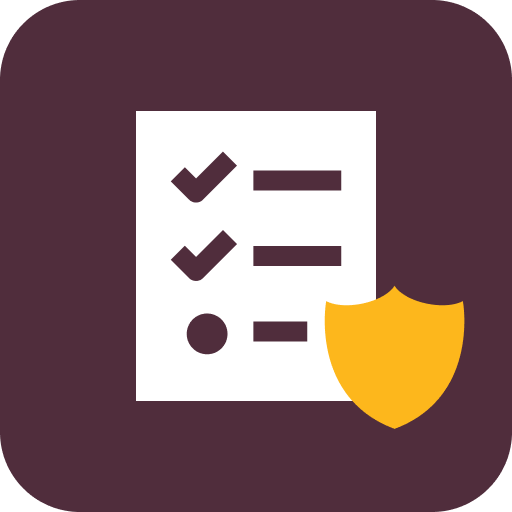Work authorization is official permission granted to a foreign national, allowing them to work legally in a specific country. This authorization is typically documented through a visa, work permit, or employment authorization document.
Are there different types of work authorization?
Yes, there are different types of work authorization, including work visas and work permits. These authorizations allow individuals to work legally in a country other than their own.
What is the difference between a work permit and a work visa?
A work permit is a document that allows a foreign national to work in a specific country. It is often issued after the individual has arrived in the country and has secured a job.
A work visa, on the other hand, is a type of employment-based visa that grants permission to enter a country for work purposes. It is typically obtained before traveling to the host country.
What is an Employment Authorization Document (EAD)?
An Employment Authorization Document (EAD) is a type of work authorization issued by the United States Citizenship and Immigration Services (USCIS). It allows foreign nationals in specific immigration categories to work legally in the United States. Examples include individuals with pending asylum applications, certain student visa holders, and spouses of certain visa holders.
Who is eligible for work authorization?
Various types of immigrants are eligible to apply for work authorization, including:
- Temporary workers: Foreign nationals who have been offered temporary employment in a specific country.
- Permanent residents: Individuals who have been granted lawful permanent resident status.
- Students: International students who are authorized to work during their studies or post-graduation, including F-1 students who are experiencing economic hardship or who want to pursue optional practical training.
- Asylum seekers and refugees: Individuals granted asylum or refugee status.
- Spouses and dependents: Family members of individuals holding certain types of visas or work permits.
- Immigrants with temporary protected status (TPS)
- DACA recipients: Individuals who qualify under Deferred Action for Childhood Arrivals for administrative relief for deportation.
- K-1 visa holders: For foreign fiances of US citizens.
- Pending green card holders: Those who have submitted their green card application and are awaiting an adjustment of status.
Who isn’t eligible for work authorization?
Individuals who do not meet the criteria set by immigration laws or who have entered the country illegally are generally not eligible for work authorization. Eligibility does not extend to tourists, undocumented immigrants, and those who have violated their visa conditions.
What happens if someone works without authorization?
Working without proper authorization can lead to severe consequences, including deportation, fines, and being barred from future entry into the country. Employers who hire unauthorized workers may also face penalties, including fines and legal action.
How does an employee apply for work authorization?
The application process for work authorization varies by country, but generally, involves steps similar to the ones below:
1. Determine eligibility. Confirm eligibility based on the individual’s immigration status and the specific requirements of the host country.
2. Gather documentation. Collect necessary documents, which may include a valid passport, driver’s license, social security number, job offer letter, biometric data like fingerprints, and proof of immigration status.
3. Submit the application for employment authorization. Complete and submit the appropriate application forms to the relevant immigration authority, (e.g. U.S. Citizenship and Immigration Services for those seeking American work authorization).
4. Pay fees. Pay any required filing fees, or submit a fee waiver application if applicable.
5. Wait for approval. Processing times can vary from weeks to months, depending on the host country.
What role do employers play in work authorization?
Employers can play a significant role in the work authorization process. They may need to sponsor foreign workers, verify their authorization to work, and comply with immigration regulations.
What is an I-9 form?
The I-9 form is a US employment eligibility verification form that employers must complete for each individual they hire. It is used to verify employees’ identity and work authorization. Employers must retain the completed I-9 forms and present them for inspection if requested by immigration officials.
How does work authorization impact hiring?
Work authorization can significantly impact hiring, especially in global and remote hiring contexts. Employers must make sure that all employees, whether local or remote, have the necessary authorization to work legally. This includes:
- Verifying their work authorization. It’s up to employers to make sure that all candidates have the appropriate visas or permits before making a job offer.
- Sponsoring work visas. In some cases, employers may need to sponsor work visas for foreign employees, which can involve additional costs and administrative efforts.
- Compliance. Maintaining compliance with immigration laws and regulations to avoid legal issues and penalties.
Frequently asked questions about work authorization
What types of nonimmigrant visas require work authorization?
Nonimmigrant visas such as the H-1B, L-1, and O-1 typically require work authorization. These visas allow foreign nationals to work in specific roles and for specific employers. Work authorization for these visas is generally tied to the job and employer specified in the visa application.
How does an employee apply for an Employment Authorization Document (EAD)?
To apply for an EAD card, they must file Form I-765 with the USCIS. This involves providing necessary documentation, paying applicable fees, and submitting the form to the appropriate USCIS service center. Detailed instructions and eligibility criteria are available at USCIS.gov.
Does work authorization expire?
Some work authorization documents, like EAD cards, come with expiration dates, but they can often be renewed or extended. This depends on the type of work authorization, the individual’s immigration status, and other factors.
Are there any penalties for employers who hire workers without proper authorization?
Yes, employers who hire workers without proper work authorization can face severe penalties, including fines and legal action. Employers are required to verify an employee’s work authorization by completing Form I-9 and ensuring compliance with immigration laws.
Can work authorization be transferred between employers?
In some cases, work authorization can be transferred between employers, but this often requires filing a new petition or application. The new employer must sponsor the visa and demonstrate that the job meets all necessary requirements.
Is an employer financially responsible for their employee's compliance with work authorization requirements?
Employers may be financially responsible for certain aspects of work authorization, such as application fees and legal costs associated with sponsoring a visa. However, they are not generally responsible for the employee's personal compliance with visa conditions.
Can visa sponsorship be rescinded, and what are the implications?
Yes, visa sponsorship can be rescinded if the employment relationship ends or if the employer withdraws their support. This can impact the employee’s legal status and ability to remain in the country, potentially requiring them to leave or find a new sponsor.
Are there compliance risks for companies sponsoring work authorization for employees?
There are several compliance risks, including ensuring that all work authorization documents are current and valid, adhering to immigration laws, and maintaining proper records. Failure to comply can result in penalties and legal action against the company.
Disclaimer: Rippling and its affiliates do not provide tax, accounting, or legal advice. This material has been prepared for informational purposes only, and is not intended to provide or be relied on for tax, accounting, or legal advice. You should consult your own tax, accounting, and legal advisors before engaging in any related activities or transactions.









































































